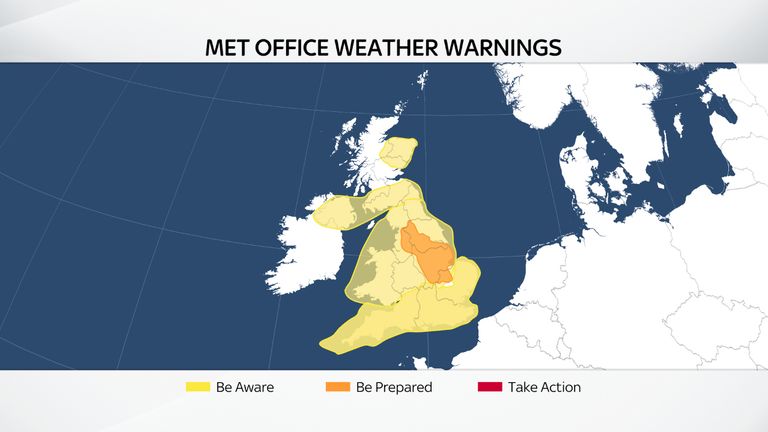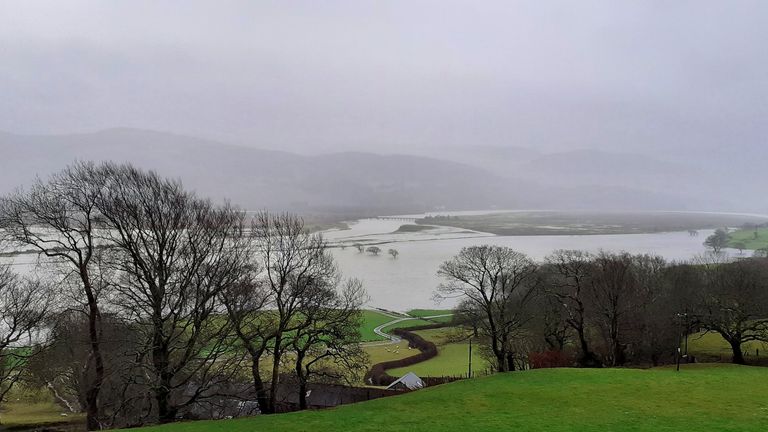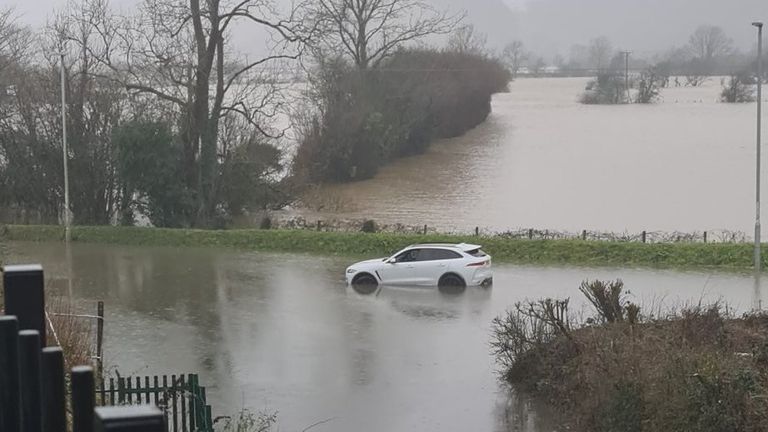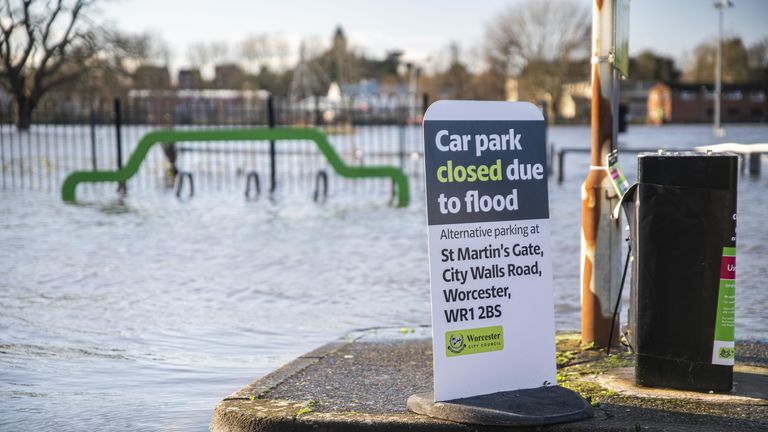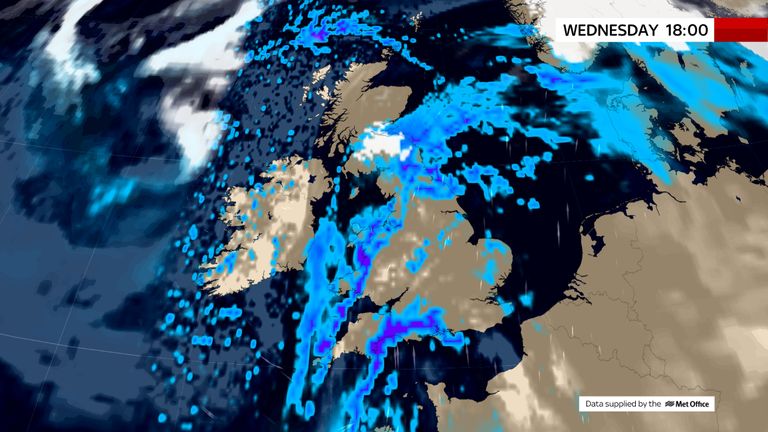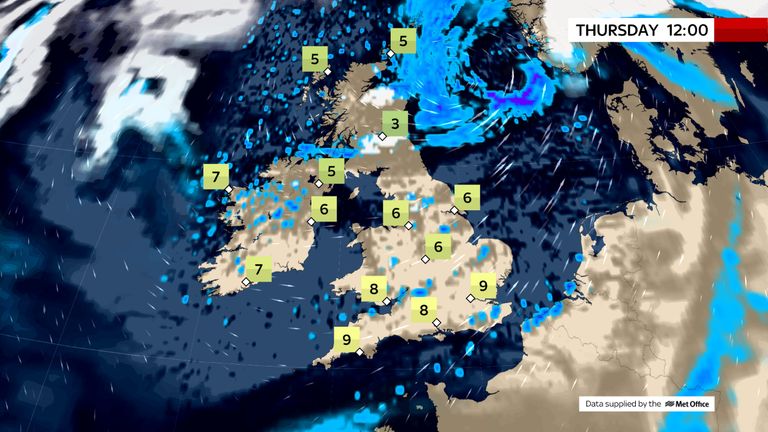Boris Johnson has told MPs he will chair a meeting of the COBRA emergency committee in response to Storm Christoph.
The prime minister addressed the Commons amid warnings the UK could see two months’ worth of average rainfall in just two-and-a-half days as the storm moves across the country.
Heavy rain is set to bring significant flooding, while some areas can also expect high winds and snow.
The Met Office has issued yellow warnings of heavy rain for much of the UK, with a more severe amber rainfall warning covering parts of northern England and the Midlands in place until Thursday.
The Environment Agency has warned of a “volatile situation”, and a major incident has been declared in both Greater Manchester and South Yorkshire ahead of further expected heavy rain.
Simon Partridge, a Met Office forecaster, explained: “It’s not a traditional sort of storm, it’s going to be windy but it’s not based on the wind strength at all, it’s really down to the disruption that’s being caused by rain.
“There are already parts of Cumbria that have already seen over 80mm of rain since midnight on Tuesday and there’s a large number of places that have seen 50mm, and we are going to see further rain over the next 24 to 36 hours.”
More than 120mm of rain has already fallen in parts of the country. The highest amount fell at Honister Pass in Cumbria, with 123.4mm in the 24 hours up to 6am on Wednesday.
Nearby Seathwaite saw the second highest total, with 107.2mm, and some isolated spots could see up to 200mm, the Met Office said.
Mr Partridge said some areas could see double the average amount of monthly rainfall over a few days.
He said: “Those areas that have seen between 50mm and 70mm already, the warning is out until midday on Thursday, so an extremely long period, but by then we could see up to 150mm to possibly 200mm of rainfall.
“The Midlands for example, their average rainfall total for the whole month is 73mm, so they could easily get double that in the course of two, two-and-a-half days.”
The rain combined with snowmelt increases the risk of flooding in some areas.
The Environment Agency has issued 50 flood warnings (meaning flooding is expected) across England and 174 less serious flood alerts (meaning flooding is possible).
The Welsh mountains and Pennines could see up to 200mm (8ins) of rain by the middle of Thursday.
And snow is also likely for some, with yellow warnings in place in southern and northern Scotland.
South Yorkshire declared a major incident on Monday evening in anticipation of flooding, and Greater Manchester Police followed suit on Tuesday.
Nick Bailey, Greater Manchester Police assistant chief constable, said heavy rainfall was expected from Tuesday evening onwards and services wanted to be “as prepared as possible”.
He said: “Whilst we appreciate that everyone has been told to stay home due to the coronavirus pandemic, we want to make it clear that should members of the public need to evacuate to protect themselves due to flooding, then that is the priority and you should follow your local authority’s advice regarding evacuation.”
North Yorkshire County Council said more than 15,000 sandbags were at the ready around the county.
Ros Jones, mayor of Doncaster, said sandbags had been given to key risk areas to help against flooding this week.
“I do not want people to panic, but flooding is possible so please be prepared,” she said.
People were also preparing for rising floodwaters in West Yorkshire on Wednesday morning, with towns in the Calder Valley laying out sandbags and flood wardens monitoring water levels.
The storm has caused concern for people living in areas devastated by the floods at the end of 2019, who say they are preparing for the worst to happen again.
However, residents of Fishlake, South Yorkshire, which was cut off by the floodwaters just over a year ago, said they are much better prepared this time, with many having sandbags dropped outside their properties on Tuesday.
As the week continues and Storm Christoph makes its way east, the risks of snow increase, the Met Office said.
Public Health England issued a cold weather alert from “first thing” on Thursday until 9am on 25 January for the North East, North West and Yorkshire and the Humber.
The agency said the risk of flooding will amplify the public health risks of the severe cold weather.
Yellow snow warnings are also in place for parts of Scotland.

